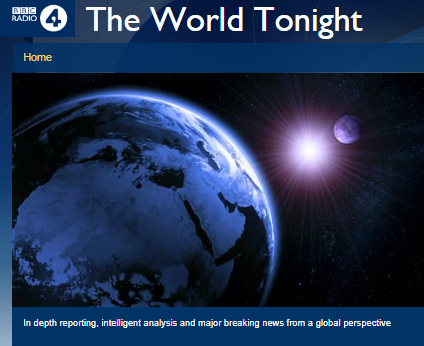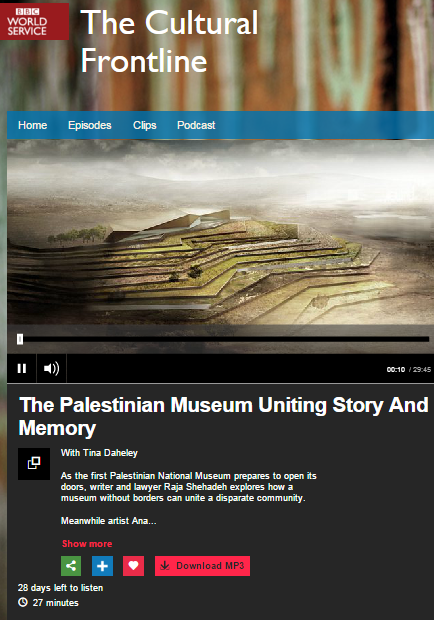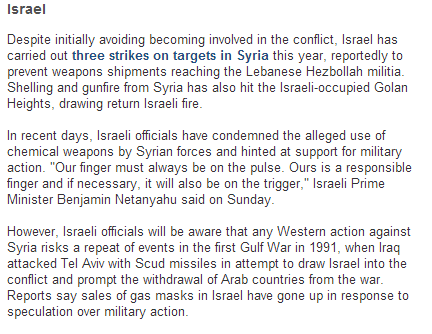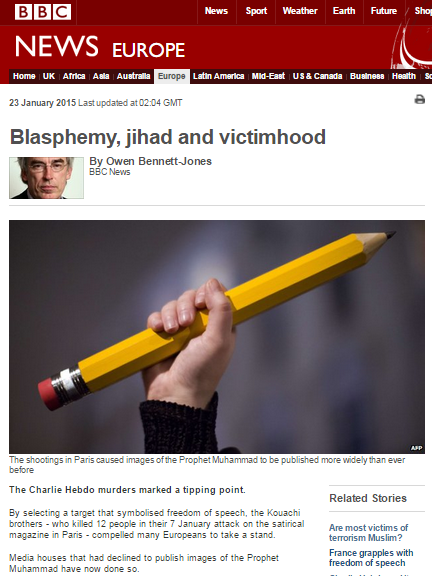As we saw yesterday the BBC News website was not interested in telling BBC audiences about the numerous terrorists’ missiles which hit the homes and businesses of Israeli civilians in places such as Ashkelon, Sederot and Netivot on November 12th.
If readers are wondering whether the BBC’s domestic radio audiences got any better coverage, the answer to that question can be found by taking a look at BBC Radio 4’s November 12th edition of ‘The World Tonight’, presented by Ritula Shah.
Near the beginning of the programme (from 05:26 here) listeners heard a news bulletin in which newsreader Chris Aldridge indulged himself with a less than accurate and impartial description of an Israeli Special Forces operation the previous night.
[emphasis in italics in the original, emphasis in bold added]
Aldridge: “Around 300 rockets have been fired from the Gaza Strip into southern Israel, prompting a wave of Israeli airstrikes. It follows what appears to have been a botched undercover Israeli operation in Gaza yesterday in which 7 Palestinians and one Israeli were killed. Our correspondent Tom Bateman reports from Jerusalem.”
Bateman: “A 19 year-old Israeli man was seriously hurt when a bus was hit by an anti-tank missile fired from the Strip. Israel said its fighter jets had targeted militant sites in Gaza in response to the barrage. Health officials in the Strip say two Palestinians have been killed – reportedly members of a militant faction. This significant escalation of hostilities makes the immediate prospects of a truce between Israel and Hamas even more unlikely, following a series of violent clashes in recent months which a UN and Egyptian brokered process was trying to calm. Militants in Gaza vowed to take revenge after yesterday’s incident in which undercover Israeli Special Forces were involved in an intense exchange of fire with Gaza based militants.”
By the time Radio 4 listeners heard that report homes in at least four Israeli communities had been hit by the terrorists’ missile fire and at least 34 people had needed medical treatment. Bateman however did not find that – or who fired the anti-tank missile; a detail also known by that time – worth mentioning.
Later on in the programme (from 30:00 here) listeners heard Ritula Shah describe members of terror factions merely as “Palestinians” and claim that the “escalation of violence” was happening – exclusively – “in the Gaza Strip” while concealing the fact that the rocket attacks were still ongoing as she spoke.
Shah: “An undercover operation that went awry and left 7 Palestinians and an Israeli officer dead has sparked an escalation of violence in the Gaza Strip. The Israeli air force has conducted strikes on the territory in retaliation for rockets fired into Israel earlier today. Video footage showed the rockets being launched – white smoky trails against a blue sky – while sirens sounded to warn Israelis to take cover. Israel said it had struck more than 70 militant sites in Gaza in response to more than 200 rockets fired from there. For the people of Gaza this escalation of violence comes after apparent progress in an Egyptian and UN backed mediation process following a series of clashes between the two sides in recent months. More than 200 Palestinians have been killed by Israeli forces in Gaza since the end of March, most during weekly protests along the border at which thousands have expressed their support for the declared right of Palestinian refugees to return to their ancestral homes in what is now Israel.”
By the time Shah was speaking around 300 rockets and mortars – not 200 – had been fired at Israeli civilian targets. Predictably she adhered to the BBC’s standard framing of the ‘Great Return March’, concealing the fact that what she euphemistically portrayed as “protests” were in fact violent riots organised by terror factions and that a significant proportion of those killed were linked to those terror groups. Likewise Shah did not bother to inform listeners that the purpose of the demand for the so-called ‘right of return’ is the eradication of Israel.
With listeners still having heard nothing of what had been going on in southern Israel during the hours preceding this programme, Shah then went on to introduce a contributor who has appeared in the past in BBC World Service content.
Shah: “So what does this latest flare-up mean for people who live in Gaza? Najla Shawa is an aid worker and mother of two young children who lives to the west of Gaza City.”
Listeners then heard a one minute and eighteen second monologue:
Shawa: “Things are very worrying. We do hear explosions every now and then. I’m lucky that I’m distant from those areas so far. But we are completely unsure about how this will turn out in the coming hours. Our first concern as the parents, you know, we have two children – almost one and a half years old and four years old, two daughters – and whenever we are… when things are tense we try to avoid being near windows or open the window slightly so that it can absorb the shock. We are so used to it that we don’t immediately run or stay away. We just live our normal lives until something really big happens. Tonight there’s heavier and we are really concerned but this is really our life. Last night we haven’t slept. Nobody is sure that we will take our kids to school or not. It’s crazy to take them to school having all these bombings and airstrikes happening. So all [both] my daughter went to school early morning, I was like what kind of schizophrenic life we have. We’re all night worrying about the intensity of the situation and then everyone goes to work, to their normal life. Because we have experienced this so…like hundreds and hundreds of times like in the past years, this is unfortunately our way of living.”
Shah went on to amplify an inaccurate version of events provided by a terror organisation.
Shah: “Najla Shawa in Gaza City. The latest trigger for violence was Sunday’s undercover Israeli operation in the south of Gaza. Israel’s chief military spokesman said that Israeli Special Forces involved in the incident had not been sent to assassinate Hamas commanders but to conduct an intelligence gathering operation. Hamas said the Israeli undercover team had infiltrated Gaza near Khan Younis in a civilian car to target the commander who was killed.”
Listeners next heard directly from the Hamas horse’s mouth as Shah introduced another monologue from Ghazi Hamad.
Shah: “Its spokesperson Ghazi Hamad told the BBC that although Palestinians were ready to die for their freedom, Israel had gone too far this time.”
Hamad: “I think what happened this time [is] that Israel broken the understandings of the ceasefire and I think they put a big knife in the back of the ceasefire and this is prove that Israel is not interested in the stability and prosperity of Gaza and it try every time to break any agreement or understanding.”
Listeners were not told at this point or anywhere else in the programme that following the incident near Khan Younis on November 11th, Gaza Strip terrorists launched seventeen missile attacks against civilians in Israel.
Shah went on to quote a Tweet.
Shah: “Well the UN envoy for the Middle East peace process, Nikolay Mladinov, Tweeted a short while ago saying the escalation in the past 24 hours is extremely dangerous and reckless. Rockets must stop, restraint must be shown by all. No effort must be spared to reverse the spiral of violence. Well Avi Issacharoff [wrongly pronounced] is Middle East analyst for the Times of Israel and one of the creators of the Israeli political thriller Fauda. Does he think a further escalation of violence is inevitable?”
Listeners then heard a discussion of the background to events with Avi Issacharoff beginning by stating “I do believe that we are into an escalation already.”
Shah: “But it comes – the timing is [unintelligible] – it comes as Benjamin Netanyahu has been saying very publicly that he wants to avoid war and many people believe that there are long-term efforts to try and maintain a truce, if not establish a better peace.”
Issacharoff pointed out that “Hamas is calling for the elimination of the State of Israel” and went on to mention a story about which BBC audiences have to date heard nothing.
Issacharoff: “Israel not only allowed more gas…into Gaza but also allowed Qatari money that will pass into Hamas’ hands to pay the salaries of Hamas’ people”
After Issacharoff had mentioned the Khan Younis incident as a factor behind the latest escalation, Shah brought up her own speculations.
Shah: “But what do you conclude from all of that then? Is Israel in a sense trying to curb Hamas before there is some kind of deal? Is this a preemptive action? What would you read into it?”
Having explained that any ‘deal’ does not mean a peace agreement in which the sides “live happily ever after with each other”, Issacharoff explained that such an understanding actually means that “there’s going to be quiet while both sides will continue to prepare themselves for the next war to come.”
Shah appeared rather shocked by the idea of an inevitable war:
Shah: “But you talk about the next war to come.”
With Issacharoff having again explained that “this will happen at the end of the day…” and that any agreement between Israel and Hamas is “a temporary truce”, Shah closed the item.
As we see, throughout this entire seven-minute item and the news bulletin which came before it, BBC Radio 4 audiences heard nothing whatsoever about what was happening to the residents of southern Israel at that very time. A more one-sided portrayal of the story is difficult to imagine.
Related Articles:
Sloppy BBC News report omits rocket hits on Israeli homes
BBC News website sources report on Gaza incident from Hamas




